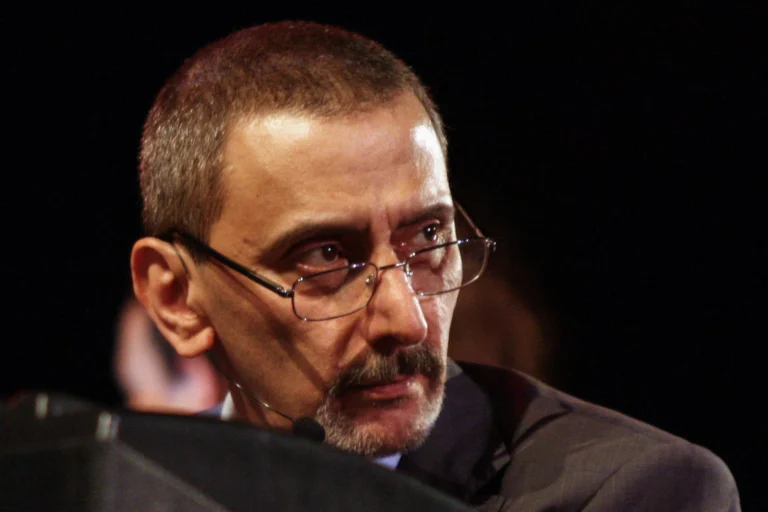Ziad Rahbani, Lebanese Icon of Music and Political Theatre, Dies at 69

Photo: Daily S
July 28, 2025 Hour: 2:07 pm
Lebanese composer, playwright, and pianist Ziad Rahbani, son of legendary singer Fairuz and composer Assi Rahbani, died Saturday morning at the age of 69, leaving behind a legacy that reshaped the cultural and political landscape of Lebanon.
A statement from the Beirut hospital where he was receiving treatment confirmed that “at 9:00 a.m., the heart of the great artist and creator Ziad Rahbani stopped beating.” Though he had long suffered from health issues, his death has sent shockwaves through the Arab world, where his music and theatre remain deeply embedded in the collective memory.
Rahbani was widely regarded as the enfant terrible of Lebanese stage and song. His works, often satirical and politically charged, reflected the tensions of Lebanon’s civil war and the country’s enduring sectarian divides. His 1980 play Film Ameriki Tawil (The American Motion Picture), set in a psychiatric hospital, offered a biting allegory of Lebanese society during wartime.
Born in 1956, Ziad was raised in a household that defined Lebanon’s golden age of musical theatre. His father Assi, along with uncle Mansour, modernized Arabic music by blending Western, Russian, and Latin American influences with traditional Middle Eastern rhythms. Ziad took this fusion further, pioneering a style he called “Oriental Jazz”, which infused Arabic melodies with jazz, funk, and classical elements.
His collaborations with Fairuz, especially in the 1970s and 1980s, introduced a darker, more introspective phase in her career. Songs like Bala Wala Chi and Kifak Inta carried his signature blend of melancholy and critique, resonating with youth across sectarian lines.
Rahbani’s political stance was unapologetically secular and leftist. He often mocked Lebanon’s confessional system and used his art to expose inequality, repression, and corruption. His breakout play Nazl el-Sourour (Happiness Hotel), written at age 17, portrayed workers occupying a restaurant to demand their rights, only to be dismissed by the elite.
Tributes poured in from across Lebanon. President Joseph Aoun called him “a voice that rebelled against injustice, a mirror for the oppressed and marginalized.” Prime Minister Nawaf Salam described him as “a free voice who remained faithful to the values of justice and dignity”.
Actress Carmen Lebbos, Rahbani’s former partner, wrote on X: “I feel like everything is gone. I feel like Lebanon has become empty.” Her words echoed the sentiments of many who saw Rahbani as the conscience of a fractured nation.
On Monday, mourners gathered in Beirut’s Hamra district to accompany his coffin, singing his songs and reciting lines from his plays. His funeral was held at the Greek Orthodox Church of Dormition in Bikfaya, where his mother Fairuz made a rare public appearance.
Rahbani is survived by Fairuz, now 90, and his siblings Reema and Hali. His legacy lives on in the music, theatre, and political imagination of generations who found in his work both rebellion and refuge.
Author: OSG
Source: EFE-Reuters






